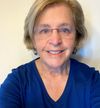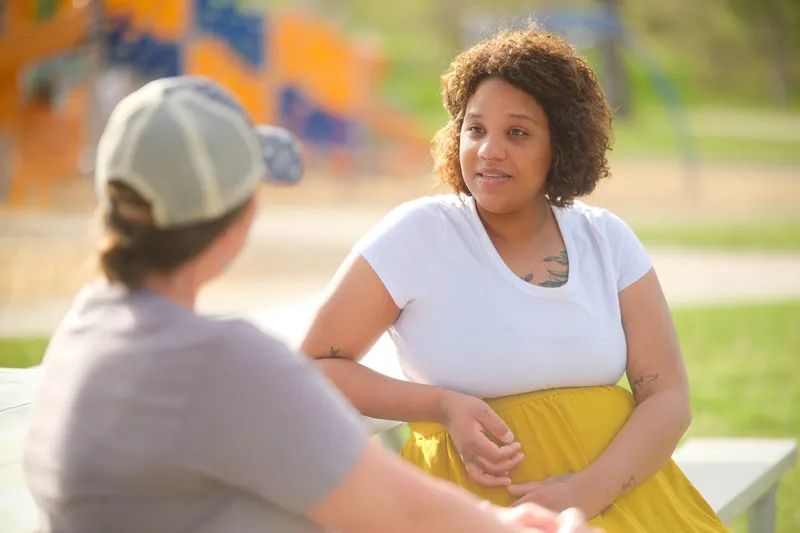
Guiding the Way
Billings mom walks alongside new moms struggling with addiction and depression
Carson Ziegler spends her days meeting with pregnant women or new moms who have wrestled with substance abuse or struggle with post-partum depression.
Carson, 32, is nine months into the job that lets her function as both a peer support specialist and a recovery doula, to walk alongside women on their maternal journeys. When she tells them she knows what they’re going through, it’s more than just extending sympathy. Carson has walked in their shoes. She was 22 when her daughter, Joplin, was born in 2013, and son Lennon came along three years later.
An autoimmune disorder made the first pregnancy a little more difficult for the Billings mom. What Carson didn’t know was that carrying that life inside her also affected her mental health in a subtle way.
“I just thought that’s how pregnancy made people feel,” she says. “I was going through pre-term labor and constant morning sickness, so that’s enough to make anyone feel less than themselves.”
Things went smoothly with her second birth. But then, in 2017 and 2018, she and her then-husband suffered two miscarriages. For Carson, life became overwhelming. At first, her mind was infected with fear, afraid she might lose the two children she already had. She couldn’t sleep.
“I was starting to hear very negative thoughts about myself, intrusive thoughts, like ‘My family would be better off without me, I’m a terrible mother,’ and it was on a constant loop in my mind,” she says.
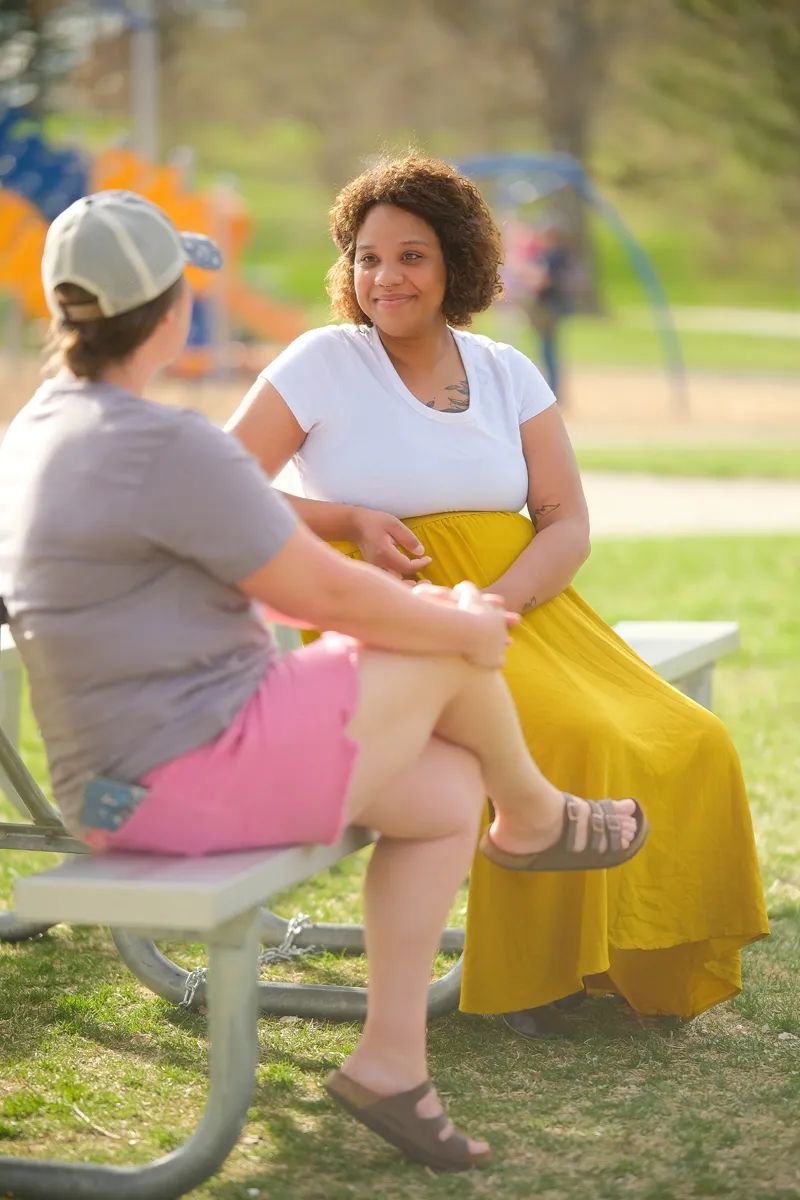
Then her sleep deprivation spiraled into psychosis, and she began to experience auditory hallucinations, convincing her that her husband believed she was a bad wife, that removing herself from the family would be best for everyone. Carson isolated herself, not talking to friends or family, not wanting to reveal the dark thoughts that consumed her.
She also used alcohol, her drug of choice since high school, as a way to numb her emotional pain. Then it all became too much. On July 4, 2019, she decided to act on her thoughts, when her husband and children were away from home.
“It’s not like I had a plan, but I saw the opportunity to be by myself and not have my children discover this awful scene,” Carson says.
She prefers not to share the details of the attempt, not wanting to give others any ideas. But her husband later told her he had a feeling something was wrong, and he arrived home in time to get her help.
Carson was hospitalized for about three days, when a psychiatrist told her she was suffering from post-partum depression with borderline psychosis, due to lack of sleep. Counseling and medication helped begin the healing process.
And then in 2020, she was hired by RiverStone Health in Billings as a breast-feeding peer counselor. Since the peer counselors meet with new moms more often than medical providers do, they may be able to catch early signs of post-partum depression.
Toward that end, her new employer paid for her to take part in a training put on by Post-Partum Support International that focused on PMADS: perinatal mood and anxiety disorders.
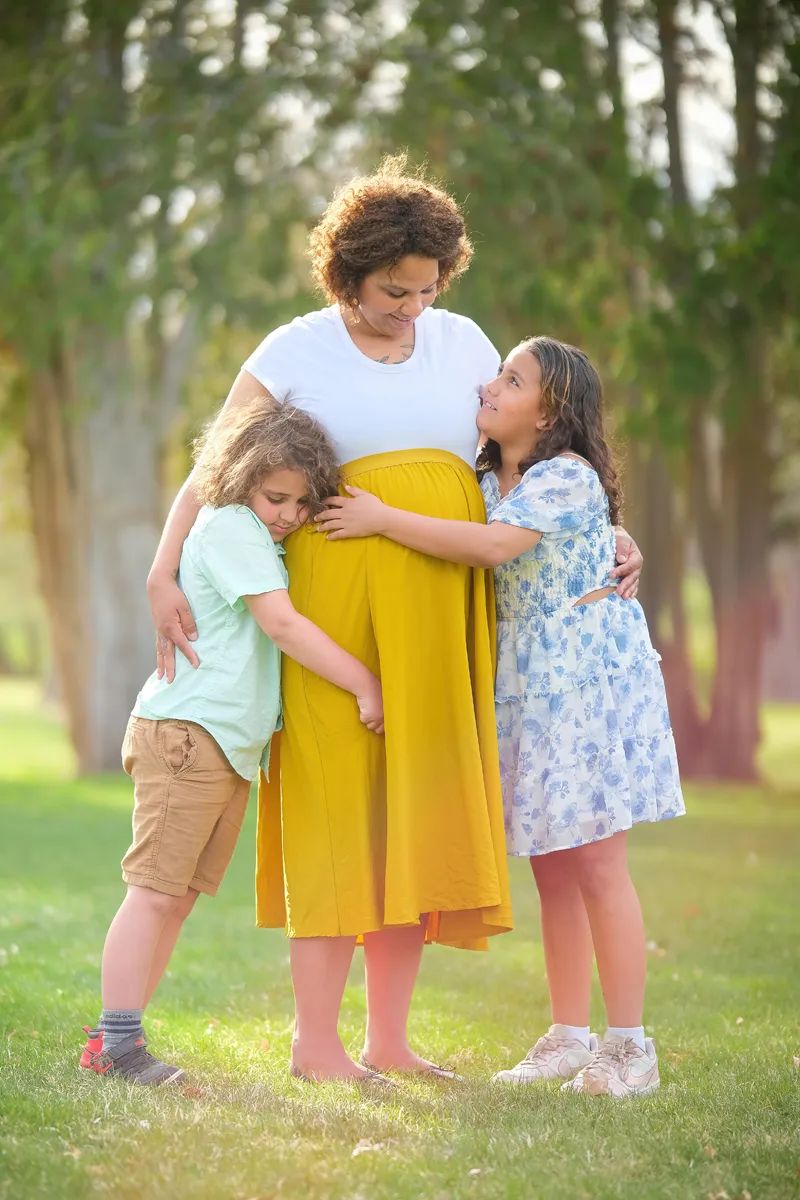
Not only did she glean a better understanding of the many forms post-partum depression can take, from feelings of sadness and anxiety to the compulsion of mothers to kill themselves, and even their children. As she listened to others share their stories, she gained insights into herself and her own journey — as well as a calling.
“It was so eye-opening, and I was like this is what I need to be doing with my life,” she says, a smile on her face. “I was able to work through what I had gone through, and then I was able to share about it in a way to help others.”
She continued her work with RiverStone Health, taking part in other trainings along the way. The more she learned, the more she saw the need for mental health resources in the perinatal population.
Changes also continued in her own life. Carson and her husband eventually divorced. That same year, she gained her sobriety.
“I just hit that next step of really learning about myself, being comfortable with myself, not running from anything, not numbing from anything,” she says.
In 2023, Carson learned about a program in Montana whose focus is on helping women whose experiences in pregnancy and post-partum issues mirrored her own. One Health, a consortium of rural health care clinics in six Montana counties, had developed a team of recovery doulas — individuals who are dual-certified as doulas and peer-support specialists. Training for the position takes a year.
Megkian Doyle, director of the Regional Community Action Team at One Health, who helped conceive the program, said it came out of a very real need among pregnant women and new mothers dealing with substance abuse, depression or anxiety.
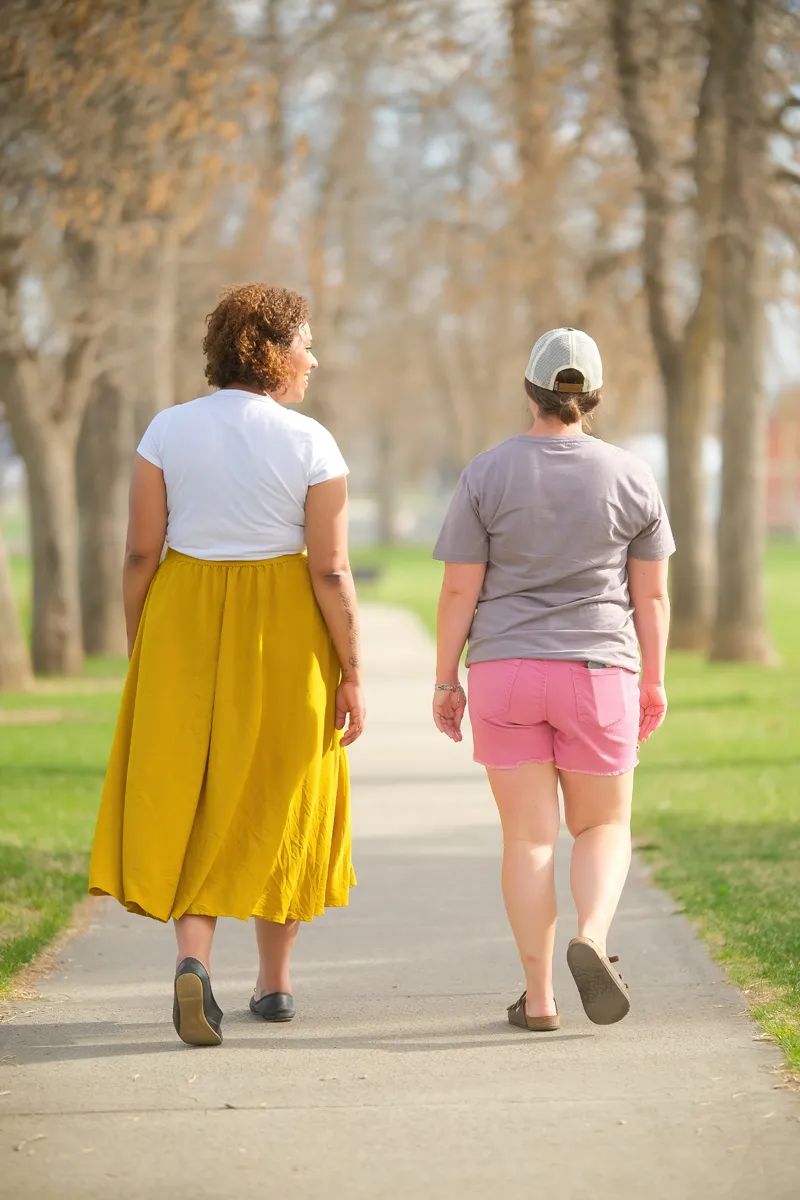
“The highest period of time where overdose, suicide and relapse were occurring was right after the birth period,” she says. “We really wanted human bodies in that spot.”
While One Health’s focus is on rural communities, it was able to collaborate with the Montana Obstetrics & Maternal Support (MOMS) program, at Billings Clinic, to create a recovery doula position in Billings.
Carson was hired for the job in August. She has already earned certification as a behavioral-health peer support specialist. In October, she began the extensive year-long training as a recovery doula, which will, among other things, allow her to accompany women in the hospital during labor.
Carson’s client referrals come from a care coordinator at Billings Clinic. They include pregnant women dealing with substance abuse or mental health issues. Carson meets with them one on one, in a coffee shop, in their homes or even in a park where her client’s children can play as the two women chat. She’ll also be with them during labor, sit with them in a waiting room or lend support when they go to get housing or financial assistance.
“I help families, too,” she says. “If a significant other is going through substance use, we can help connect them to resources and peer support so they can be the best support for the mother.”
Carson is also organizing support groups for expecting women, divided up by trimesters, and new mothers. The groups will be open to all women, not just those who have been referred to her by the care coordinator.
“I know they say it takes a village, but not a lot of people have that village,” she says. “We’re creating a space where woman can meet regularly.”
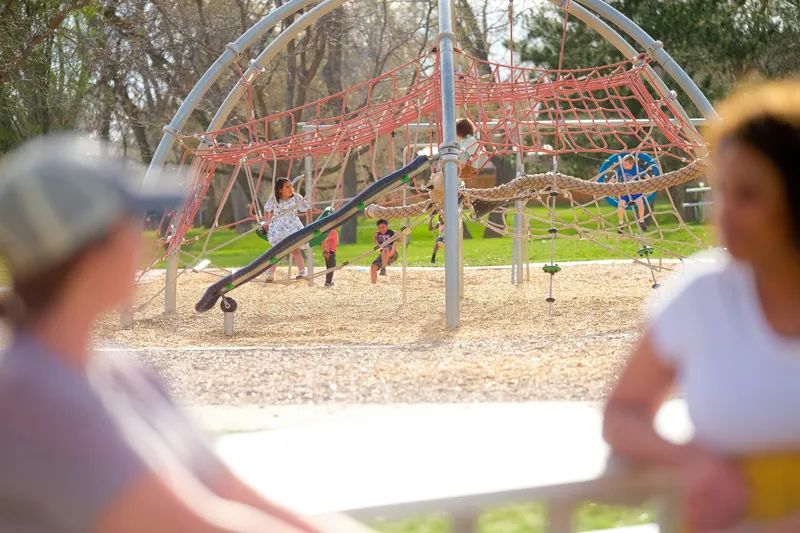
Carson hopes that in the course of her work, she can begin to break a stigma that still exists. Women, and others surrounding them, too often assume that pregnancy and the birth of a baby ought to be happy occasions. If expectant moms instead feel sad, anxious, depressed or are bombarded by dark thoughts, they’re afraid to speak about it.
“You know the thoughts you’re having are irrational and if you were to tell somebody, there’s that fear that your children will be taken away or that you’re gonna get committed — which isn’t always a bad thing,” she says. “But you have these fears built up that if you talk to somebody, there’s going to be consequences.”
Carson is glad to be in a position now where she can encourage and support women experiencing those feelings, to let them know they’re not alone or an anomaly. That they can make it out to the other side. That they will be OK.
Asked what it would have been like if she had encountered that kind of support when she was going through her dark days, Carson doesn’t hesitate: “Incredible. Life-changing.”
But at the same time, she recognizes that what she went through helped lead her to where she is today.
“It is so empowering to know that though I was at the lowest point in my life, it led me to this success and being able to help others through it and not feel so alone,” she says.
TO CONTACT Carson Ziegler about the support groups she's organizing, call her at 406-679-3483, or email at carson.zeigler@onechc.org.


